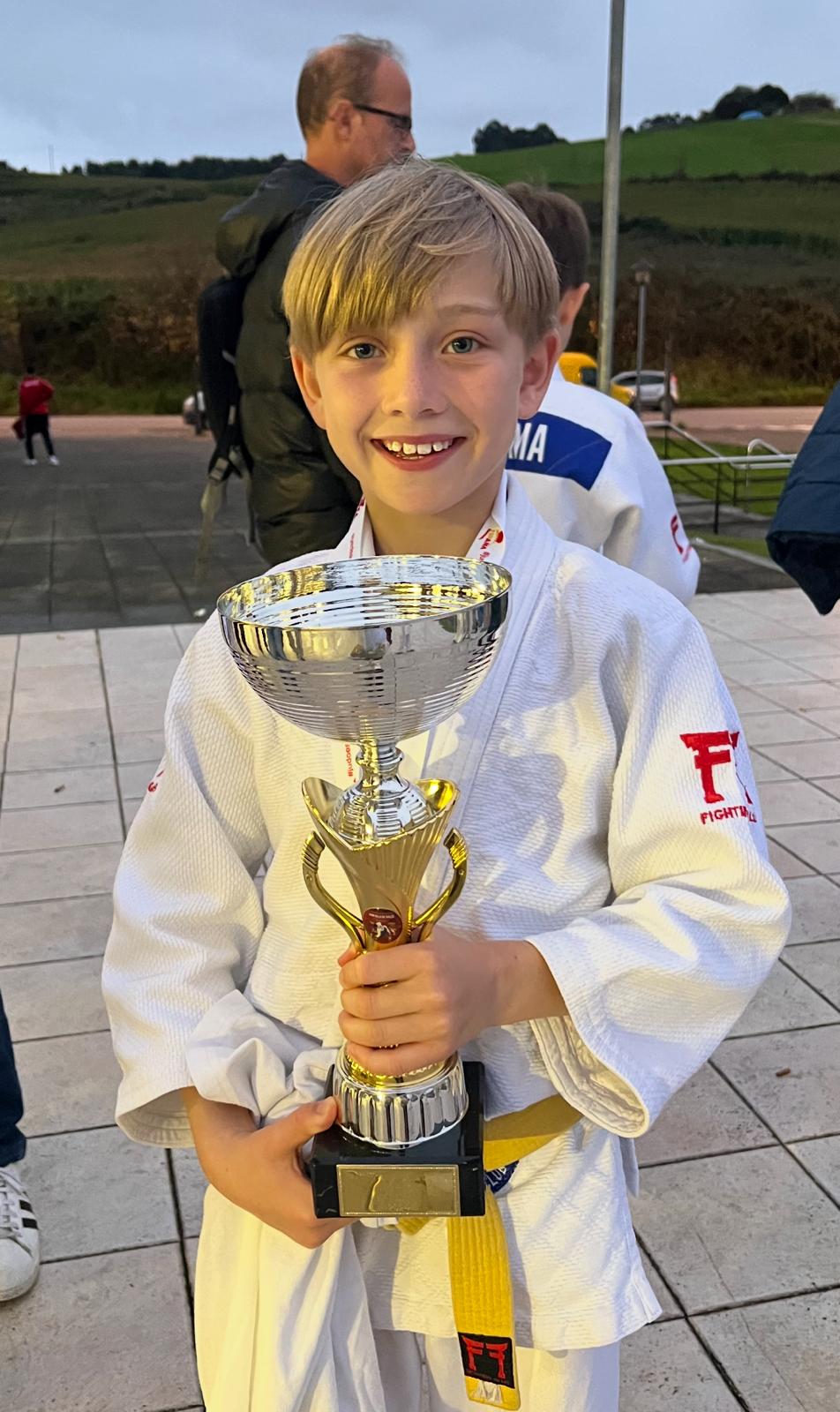
Kit, Hub Athlete Wins National Judo Title
by Hubsport Online | May 6, 2025
This month we will celebrate one of our valued Hub Athletes, Kit, a Judo Fighter, and member of The Premier Hub Inner Circle.
Kit started judo as a lunchtime club at school and soon realised he had a passion for the sport, so joined Mike’s Judo Club in March 2023.
Since that time, he has worked tirelessly, with an admirable work ethic, resulting in innumerable gold medals both in the UK and various European countries, but in 2024, one gold medal eluded him: the British Nationals, where he got silver. As such, his main goal for 2025 was to win Nationals
Judo is a demanding sport, and Kit’s journey has been far from easy. He has faced setbacks, including periods of lost confidence, difficulties handling pressure in competitions, and challenges in training to consistently perform at his best.

His mother, Chloe, said “his sessions with Nino have been a game changer. Nino’s balanced, motivational and always positive approach has helped Kit understand why he has faced these challenges and taught him how to counter them. In addition, his sessions are teaching Kit the many facets needed to become a successful athlete.
Without a doubt, Nino’s invaluable support has been an integral part of Kit achieving the first of his many hopes and dreams in judo and, on 3rd August 2025, he won Nationals to become British National Champion”.
Here are some major reasons why The Hub would recommend Judo:
The Physical and Athletic Benefits of Judo for Young Developing Athletes
Judo, a modern martial art developed in Japan by Jigoro Kano in the late 19th century, has evolved into a globally respected Olympic sport practiced by millions. While judo emphasizes throws, pins, and submission techniques rather than striking, it is much more than a combat sport. For young developing athletes, judo offers a comprehensive platform for physical and athletic development. Its emphasis on balance, coordination, strength, agility, and endurance makes it one of the most beneficial sports for youth seeking to build a strong athletic foundation. This essay explores the physical and athletic advantages that judo offers to young athletes during their crucial developmental years.
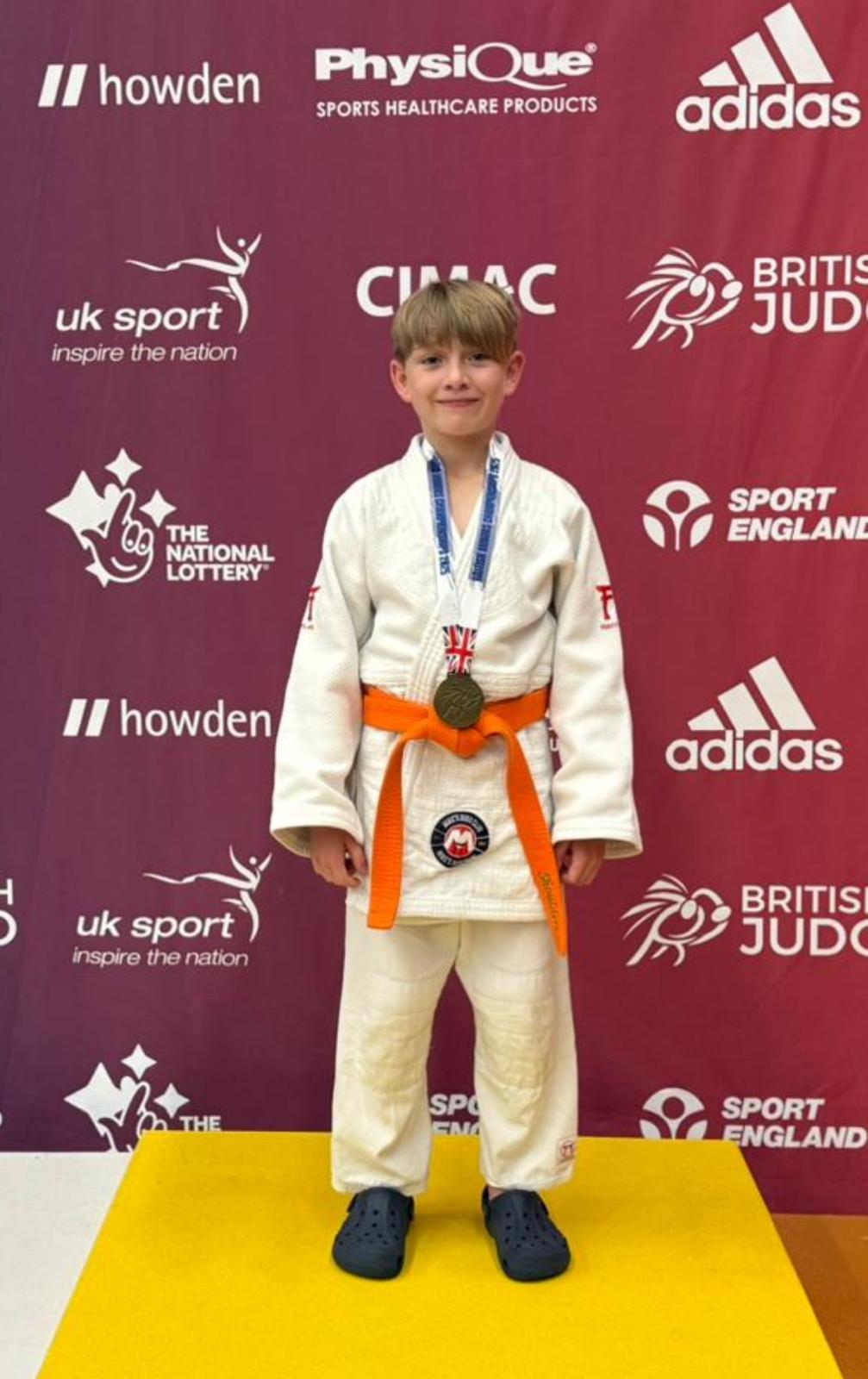
- Full-Body Conditioning
One of the most prominent athletic benefits of judo is its ability to condition the entire body. Judo training involves a wide range of movements that recruit nearly every muscle group. From gripping and lifting opponents to executing throws and falls, young judokas develop strength in their upper and lower body, core, and grip.
Unlike some sports that primarily focus on either upper or lower body strength, judo ensures balanced muscle development. The nature of the sport requires athletes to move, resist, and control another person’s body weight, which functions as a form of resistance training. This builds lean muscle mass and contributes to muscular endurance, which is essential for long-term athletic performance in a variety of sports.
- Development of Balance and Coordination
Balance and coordination are cornerstones of judo. Throwing or resisting throws demands precise timing and body awareness. Judokas are constantly required to sense the movement of their opponents, shift their own weight accordingly, and react with stability and control.
For young athletes, developing these motor skills early can provide a significant advantage in their overall athleticism. These skills are transferable to nearly every sport — from soccer and basketball to gymnastics and tennis. Through judo, athletes learn how to move fluidly and efficiently, improving their ability to control their own bodies under pressure.
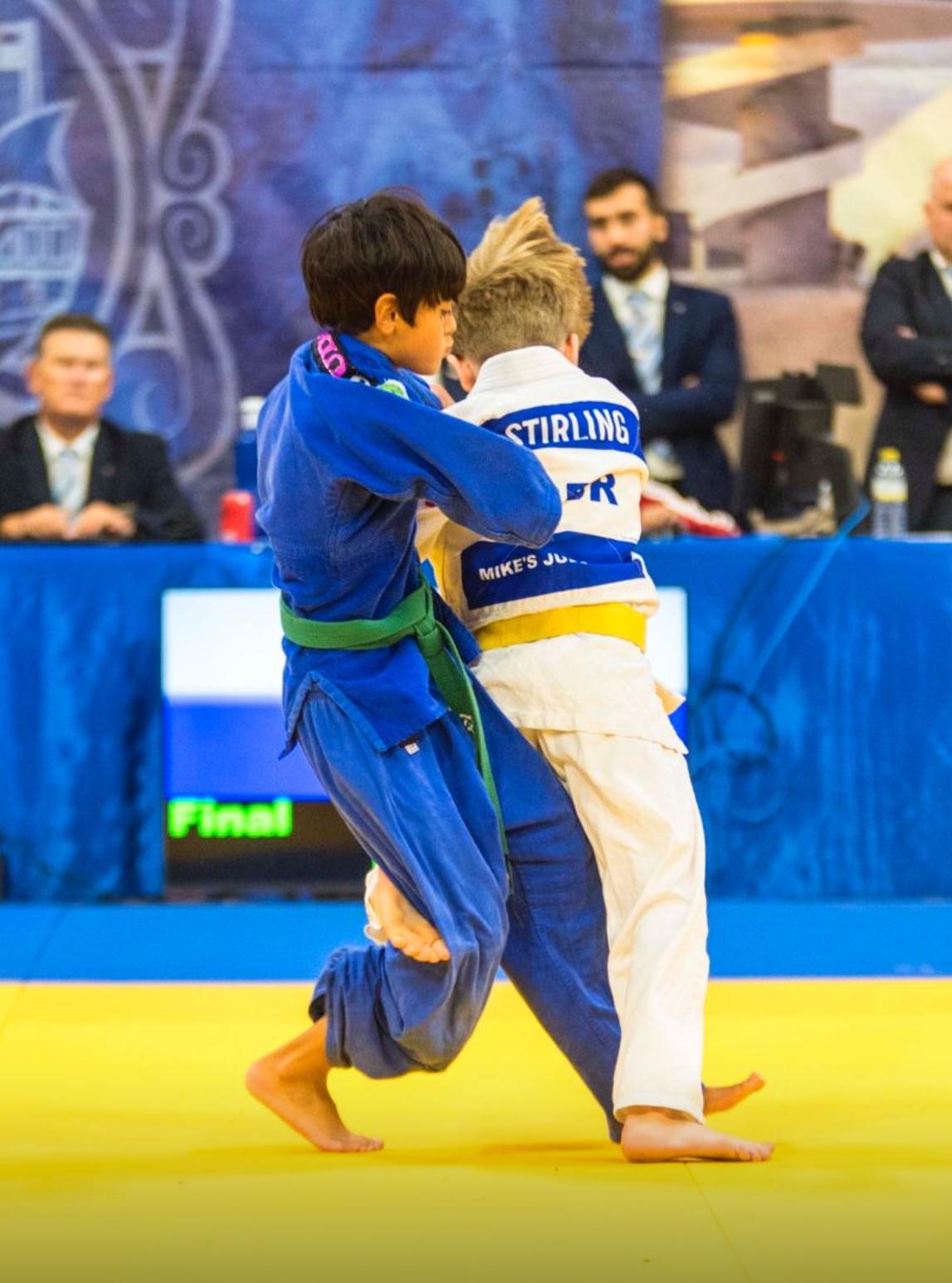
- Enhanced Flexibility and Mobility
Flexibility is essential in judo to execute techniques, escape pins, and avoid injuries. Regular training encourages dynamic stretching and controlled movement, which naturally increases the range of motion in joints and muscles.
Young judokas benefit from improved hip mobility, spinal flexibility, and shoulder range of motion. These physical attributes reduce the risk of injury and prepare athletes for higher levels of physical activity, not just in judo but across all sports.
- Strength Development Without Early Specialization Risks
Early specialization in certain sports — especially those involving repetitive motion, like swimming or baseball — can increase the risk of overuse injuries and burnout. Judo, on the other hand, provides diverse movement patterns and encourages balanced strength development.
Because judo uses bodyweight resistance and dynamic motion rather than external weights or repetitive drills, it offers a safe and natural way for children to build functional strength. This makes judo a low-risk, high-reward athletic activity, especially important during the sensitive years of physical growth and bone development.
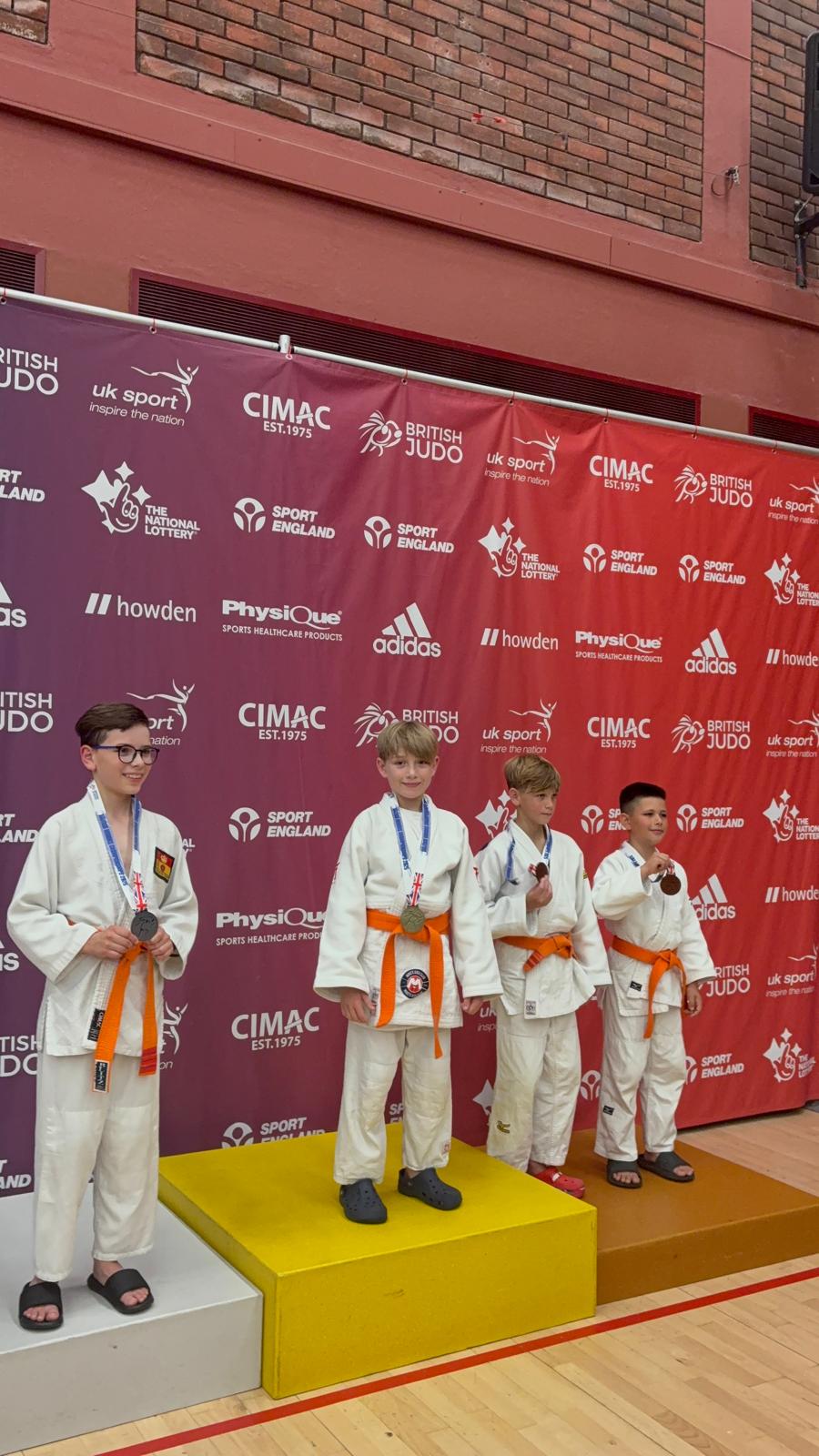
- Cardiovascular and Anaerobic Fitness
Judo bouts (called randori) and drills simulate high-intensity interval training (HIIT), which is effective for building cardiovascular and anaerobic fitness. A typical judo match or practice includes bursts of intense action followed by brief recovery periods, mimicking the conditions of many competitive sports.
This kind of training boosts heart health, lung capacity, and metabolic efficiency. For young athletes, building cardiovascular endurance through judo enhances stamina and energy levels, making them more resilient and effective in both training and competition across other sports.
- Injury Resilience Through Ukemi (Breakfall Training)
One of the unique and highly valuable aspects of judo training is the emphasis on ukemi, or falling techniques. Young judokas learn how to fall safely and protect their bodies upon impact. This not only prevents injuries in judo itself but also enhances an athlete’s ability to absorb shocks and reduce risk of injury in other sports and physical activities.
Children who practice judo develop confidence in falling, which is crucial in any contact or movement-based sport. Whether playing football, skateboarding, or simply running on a playground, knowing how to fall properly can significantly reduce the risk of serious injury.
- Body Awareness and Spatial Intelligence
Judo trains athletes to become highly aware of their own body positioning and that of their opponents. This develops proprioception, or the body’s ability to sense movement, action, and location. This skill is essential for sports that require spatial judgment, quick reflexes, and real-time decision making.
Young judokas learn to read opponents’ intentions, maintain balance, adjust positioning, and make split-second decisions. These elements sharpen their spatial intelligence and enhance their athletic IQ — both of which are crucial in high-performance sport settings.
way!
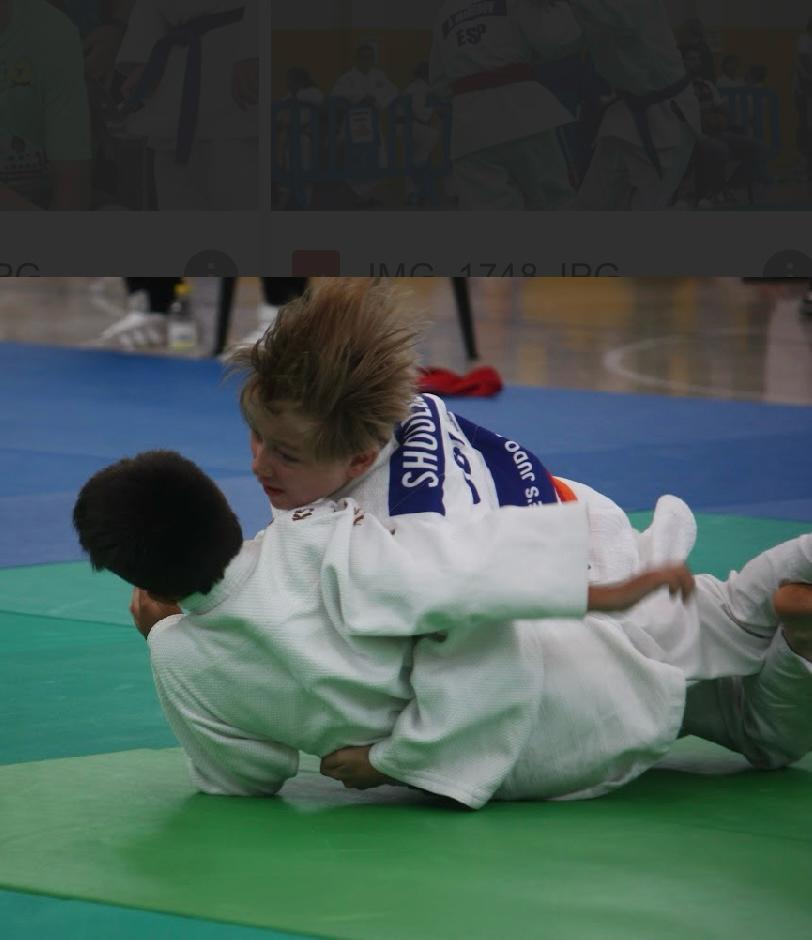
- Coordination Between Mental and Physical Effort
Although primarily a physical discipline, judo also requires a high level of mental engagement. Judokas must remain calm under pressure, read their opponents, and strategize movements. This interplay between mind and body encourages neuro-muscular coordination — the ability of the nervous system to efficiently control muscle movement.
For developing athletes, this integration of mental and physical skills leads to better overall motor control, faster reaction times, and more strategic athletic behavior. These qualities are vital in competitive sports environments where physical ability alone is not enough.
- Holistic Physical Literacy and Long-Term Athletic Development (LTAD)
Judo supports the principles of Long-Term Athletic Development (LTAD) by providing a multi-faceted approach to fitness. Instead of focusing on early success in competition, LTAD prioritizes the gradual and appropriate development of fundamental movement skills, physical literacy, and athletic versatility.
Young athletes who train in judo acquire a strong base of athletic competencies that can later be refined in any sport they choose to specialize in. By encouraging fun, engagement, and variety, judo reduces the risk of burnout and promotes a lifelong relationship with physical activity.
Judo is much more than a martial art or combat sport — it is a comprehensive athletic training system that nurtures young athletes physically, mentally, and emotionally. From developing strength, balance, flexibility, and cardiovascular fitness to improving coordination, body awareness, and injury resilience, judo provides an ideal environment for athletic development. For young athletes in their formative years, judo offers not only the skills necessary for success in sport but also the physical foundation for a healthy, active life. Whether as a primary sport or a complementary discipline, judo deserves recognition as one of the most effective tools for physical and athletic growth in youth.
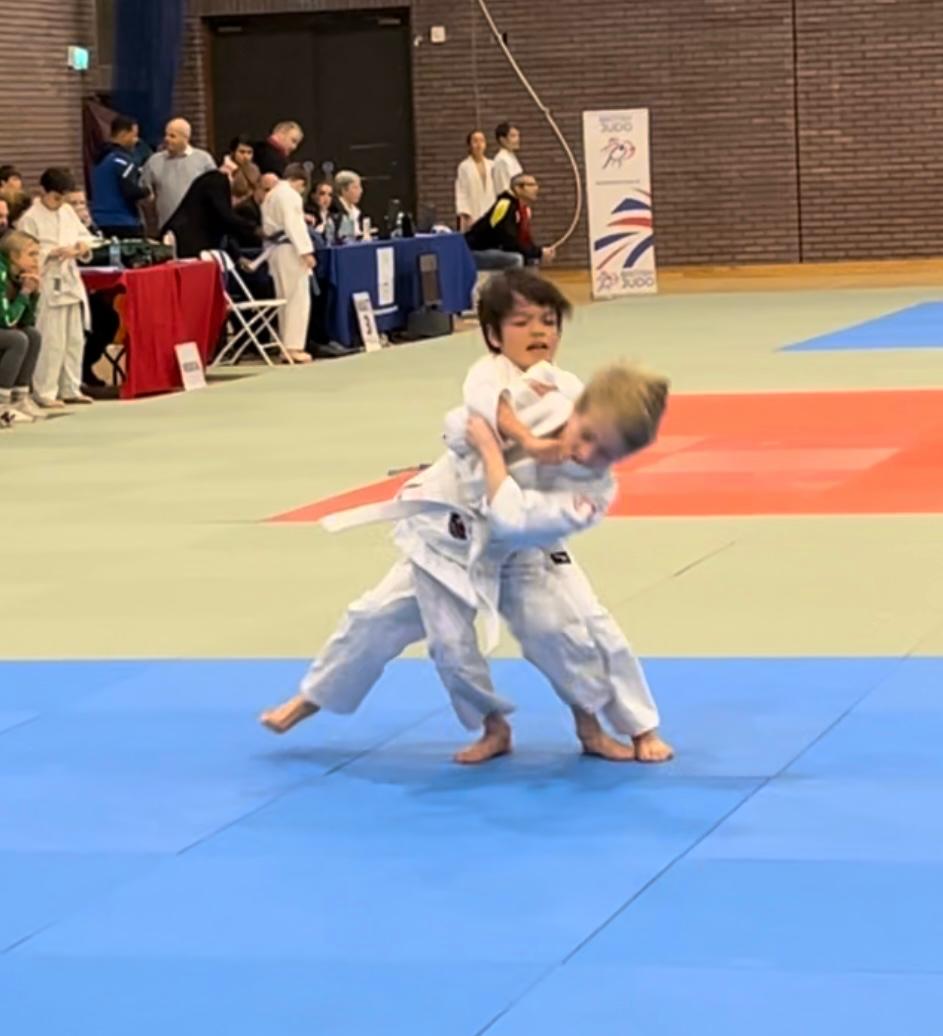
The Hub training, support and education is delivered from multiple sites, by The Hub team of experts.
